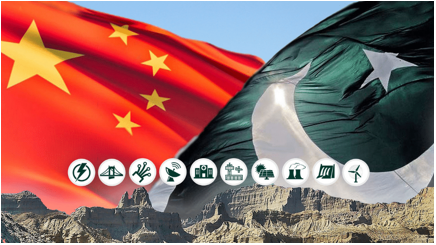i INP-WEALTHPK
Ayesha Saba
The second phase of China-Pakistan Economic Corridor (CPEC 2.0) offers Islamabad a strategic opportunity to attract quality foreign direct investment, stimulate industrial growth, and build indigenous technological capacity through structured Business-to-Business (B2B) collaboration.

While the roadmap is promising, its success will depend on policy coherence, institutional support, and Pakistan’s ability to fully integrate its private sector into this evolving economic partnership.
Talking to WealthPK, Asad Rehman, Policy Analyst at S&P Global, noted that the focus of CPEC 2.0 is on deepening economic integration through the development of Special Economic Zones (SEZs) and fostering joint ventures between Pakistani and Chinese firms.
He emphasised that this model of B2B cooperation is essential for attracting sustainable FDI and facilitating the transfer of advanced technologies. “Pakistan must capitalise on the industrial relocation strategies of Chinese enterprises looking for cost-effective production hubs. This is a unique opportunity to upgrade our manufacturing base,” he stated.
“Pakistan should concentrate on luring increased FDI inflows and implementing trade-related investment measures besides developing a comprehensive, objective-oriented, and rigorous approach to find and secure more FDI inflows from the Chinese companies,” he suggested.
He further highlighted that Pakistan’s geostrategic location is a major asset in this phase. “Pakistan lies at the intersection of key regional markets, including Central Asia, the Middle East, and China. Leveraging this location through integrated industrial supply chains can enhance regional connectivity and attract multinational investment,” he explained.
Rehman points out that CPEC 2.0 could play a key role in embedding Pakistani industries into global value chains, particularly in sectors such as textiles, light engineering, agri-tech, and renewable energy. However, he agrees that policy consistency and institutional capacity are critical for success.
Dr Nadeemul Haque, former vice-chancellor of Pakistan Institute of Development Economics, warned that without reforming the domestic regulatory environment, including improving the ease of doing business and ensuring transparency, the benefits of CPEC 2.0 may remain limited.
He stressed the need for an enabling ecosystem that supports entrepreneurship, rewards innovation, and facilitates knowledge exchange between Pakistani and Chinese firms.
Haque, who is also former deputy chairman of the Planning Commission, believes that effective technology transfer will only be possible if Pakistan aligns its education and vocational training systems with the technical requirements of new industries entering the SEZs. “Upskilling the workforce to match the standards of modern industrial operations is vital for long-term competitiveness.”
Credit: INP-WealthPk



